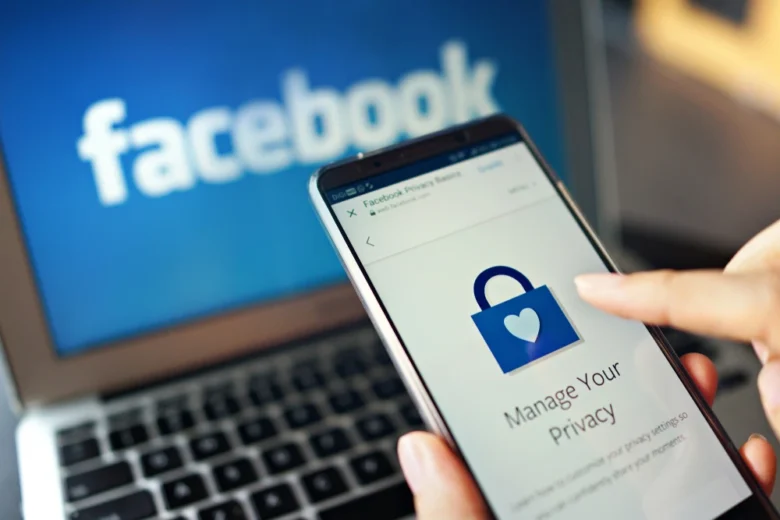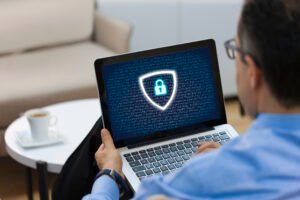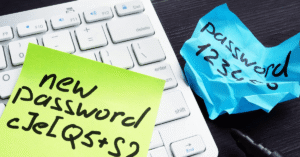Social media has become an essential part of everyday life. It allows people to share their lives, stay connected with friends, and stay informed about what’s happening around the world. With sites like Facebook, Instagram, Twitter, and TikTok, staying in touch with friends and family is easier than ever. However, these advantages also pose risks to your security and privacy. Sometimes strangers, scammers, or even hackers can misuse the information you post on social media for malicious purposes. This means it’s crucial to learn how to stay safe online while using social media.
The Dangers of Oversharing
Oversharing is one of the biggest privacy risks on social media. Many people unknowingly reveal personal information, such as their location, daily routines, or family details. Cybercriminals can use this information to steal your identity, commit fraud, or even track your movements. Even seemingly innocent posts, like sharing vacation details, can expose your home to risks while you’re away. One of the most important ways to protect your privacy on social media is to minimize the amount of content you post publicly.
Change Privacy Settings
Most social media sites allow you to use privacy settings to control who can see your posts. Unfortunately, many people ignore these options or don’t use them correctly. By changing your privacy settings, you can ensure that only people you trust can see your posts and personal information. You can choose who can see your personal information, photos, and friends list. It’s important to check these settings regularly, as platforms’ privacy policies can change. By configuring these settings correctly, you can better manage your online presence and reduce the risk of outsiders misusing your information.
Be Careful with Friend Requests
Accepting friend or follow requests without thinking can compromise your privacy. Many people create fake social media accounts to obtain personal information or spread inappropriate content. Please review the profile information before accepting a request to ensure you are familiar with the individual. It’s advisable to reject or block accounts that seem suspicious. By being careful with friend requests, you can improve your online security and reduce the chance of others accessing your personal information.
Avoiding Clickbait and Suspicious Links
Social media is full of links, advertisements, and promotions that seem appealing, but occasionally they lead to unauthorized websites. Clicking on unknown URLs can infect your device with malware or lead you to phishing sites that steal your data. Some messages use “clickbait” to lure you into visiting dangerous pages. To protect your privacy, only click on links from websites you trust and be wary of offers that seem too good to be true. Safe browsing is crucial for protecting your privacy when using social media.
The Importance of Strong Passwords
Securing the passwords for your social media accounts is the only way to keep them safe. Using weak or misused passwords makes it easier for hackers to break into your accounts and steal your data. To keep your data secure, you need strong passwords that contain letters, numbers, and symbols. Using a different password for each account further reduces the threat, as a single breach doesn’t affect multiple platforms. Two-factor authentication adds an extra layer of security to your accounts, making it even harder for hackers to access your data.
Think Before You Post
Every time you post something on social media, you leave a trail online. Even if you later delete screenshots or saved copies, they can still be there. You can avoid sharing information that might jeopardize your privacy by carefully considering what you post. Please consider who might view the content and whether it is necessary to disclose it. Avoid sharing personal information, such as phone numbers, addresses, or financial information. By being mindful of what you post, you can enjoy social media without putting yourself at risk.
Limiting Location Sharing
Many social media apps allow people to display their real-time location. This tool may seem like a beneficial feature, but it can allow others to see where you are without your knowledge. Constantly tagging locations or allowing others to see your physical location can compromise your safety and privacy. Disable location services in social media apps or only share your location with people you trust. By limiting the scope of location data you share, you can keep your private life safer and prevent strangers from tracking you.
Inform Family and Friends
Your social media privacy is affected by your actions and those of your acquaintances. Family and friends can share photos, posts, or tags without your knowledge, revealing information you don’t want them to see. By discussing online safety with them, you can protect your privacy. It’s crucial to teach children how to post safely, as they may not realize how dangerous it is. By raising awareness among those around you, you can make the internet safer for everyone.
Conclusion
Social media is a wonderful way to stay connected, but if used irresponsibly, it can compromise your privacy. To protect your privacy, be careful about what you share, monitor your settings, and be wary of scammers. Using strong passwords, carefully handling friend requests, and limiting app functionality are all crucial. As long as you don’t overshare, think twice before posting, and teach others to develop safe habits, your privacy will be protected. You can use social media safely and protect your personal information by taking the right precautions.
FAQs
1. What is the importance of privacy on social media?
Social media privacy settings prevent strangers, scammers, and hackers from using your personal information without your permission.
2. How can I protect the privacy of my social media accounts?
You can change your privacy settings, use a strong password, enable two-factor authentication, and limit what you share with the public.
3. Should I accept friend requests from strangers?
No, accepting friend requests from strangers can compromise your privacy and lead to scams.
4. Can I share my location on social media?
Constantly sharing your location is dangerous because others can see where you are. It’s best not to share your location, or only to share it with people you trust.
5. What should I do if I discover a fake profile?
To protect your privacy and security, we ask that you do not contact the fake profile or report it on the platform.




